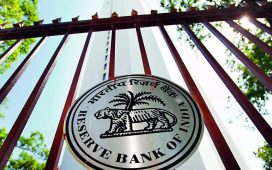The Securities and Exchange Board of India (Sebi), however, opposed it alleging violation of its circular related to voting process of debenture holders (DHs).
A Bench led by Justice BR Gavai – while reserving its judgment on giving approval for AII’s resolution process (RP) – asked all parties to file a small note of their submissions.
AII and RHFL have filed separate, but identical appeals seeking the go-ahead for the former’s resolution plan to take over the company.
The offer translates into a 74% haircut on RHFL’s total dues of ₹11,541.44 crore.
Both have cited an order by the apex court in September – Sebi vs Rajkumar Nagpal & Ors – that allowed lenders of Reliance Commercial Finance (RCFL) to go ahead with the resolution plan.
Senior counsel Dhruv Mehta, appearing for AII, argued that dispensation to vote virtually or physically was given to all debenture holders but still some of them abstained from doing so.Applying Sebi’s circular to the voting conducted on May 13 will lead to unscrambling of the resolution plan, which had already been agreed upon by the lenders under the framework of the Reserve Bank of India, he said.
The present case involves the interest debenture holders who subscribed to debentures issued by RHFL from time to time.
According to Mehta, an abstention by an informed DH cannot be treated as dissent.
“As per Sebi’s contention, as an additional 19,861 debenture holders (i.e., 19,854 plus 7 debenture holders), representing ₹1,143 crore of debt would be entitled to stand outside the Resolution Plan (including 18,584 debenture holders receiving 100% principal repayment). The remaining 1,277 debenture holders representing an amount of ₹932 crore, constitute qualified institutional buyers/ high net worth individuals (non-retail investors). Their decision to not attend the DHs meeting, signifies their intention to not vote against the Resolution Plan.”
Senior counsel KK Venugopal, appearing for RHFL, submitted that out of the over 19,000 debenture holders, 18,584 were receiving 100% of their principal investment and this had nothing to do with dissenting debenture holders.
If the plan does not go through, he said, then the company will go into liquidation and no debenture holder will get 100% of the money back.










